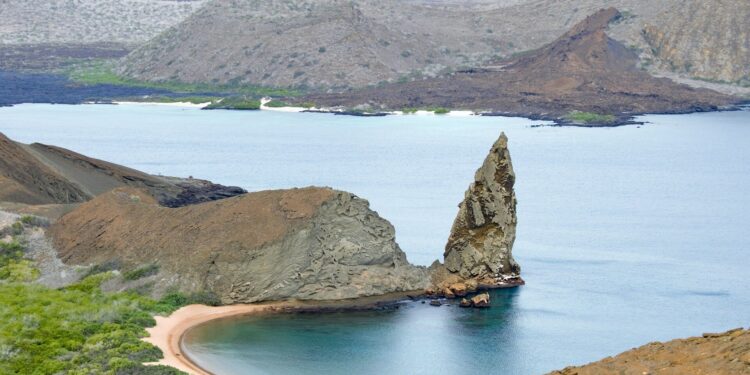Credit: Pixabay/CC0 Public Domain
Islands drive linguistic change and linguistic diversity in the same way they drive species diversity, according to a study from the Australian National University (ANU) that analysed the languages of more than 13,000 inhabited islands. The study is published in Nature Ecology and Evolution.
Although representing a tiny proportion of the world’s land mass, islands have had a disproportionate impact on biological science because they demonstrate evolution in action.
The Galapagos Islands are one example: they are famous for shaping 19th-century naturalist Charles Darwin’s ideas about evolution.
ANU biologists wanted to know if islands played a similar role in understanding language evolution and diversity. To answer this question, they developed a database of all the languages on more than 13,000 inhabited islands.
Lead author of the study and ANU evolutionary biologist Professor Lindell Bromham said nearly a fifth of the world’s languages are spoken on islands, despite them making up less than 1 per cent of the world’s land mass.
“Islands are the laboratories of evolution. For Darwin, islands were a microcosm of the processes of change that were happening everywhere,” she said.
“We were curious to know why islands capture so much of the world’s linguistic diversity. When we analyzed the global database, we discovered that islands play a similar role in creating linguistic diversity and in biodiversity.”
According to ANU researchers, the number of endemic island languages increases with the size of the island and the distance from the mainland.
“About 10% of languages are endemic to islands, used only or mainly on islands,” Professor Bromham said.
“Island languages also show distinct patterns of evolution, with languages spoken primarily on islands having far fewer phonemes, the basic sound units from which words are built.”
This study builds on previous studies that examined global trends in linguistic diversity and threat. The previous study found that global linguistic diversity is in a crisis of loss as severe as the threat to biodiversity, with more than a third of the world’s languages at risk and potentially 1,500 languages lost by the end of the century.
“Our analysis shows that island endemic languages do not have significantly higher levels of danger than their mainland counterparts,” Professor Bromham said.
“But because islands hold a disproportionate share of the world’s linguistic diversity, they will play a crucial role in safeguarding linguistic diversity.
“Islands are not only cradles of linguistic diversity, but also arks that carry linguistic diversity into the future.”
More information:
Lindell Bromham et al., Islands are engines of linguistic diversity, Nature Ecology and Evolution (2024). DOI: 10.1038/s41559-024-02488-4
Provided by Australian National University
Quote:Islands are engines of linguistic diversity, study finds (2024, September 6) retrieved September 6, 2024 from
This document is subject to copyright. Apart from any fair dealing for the purpose of private study or research, no part may be reproduced without written permission. The content is provided for informational purposes only.



